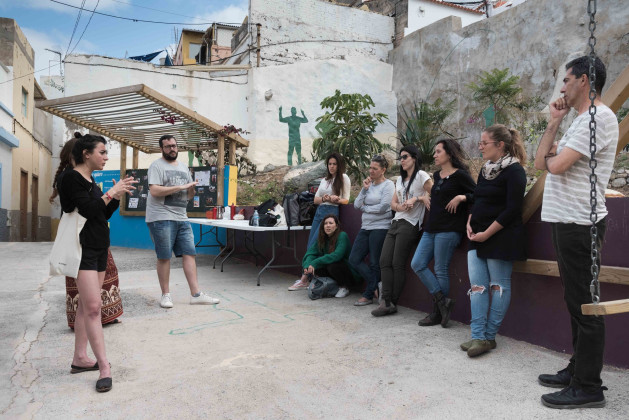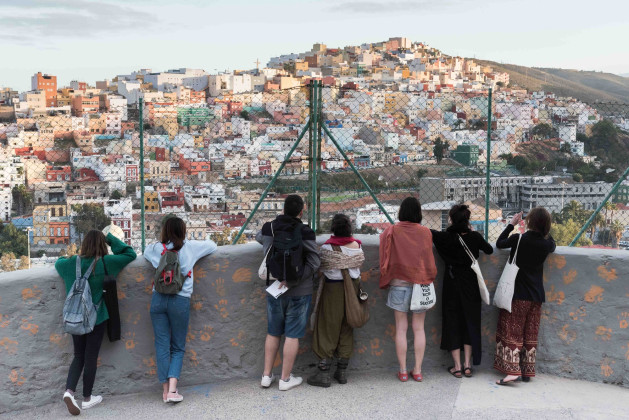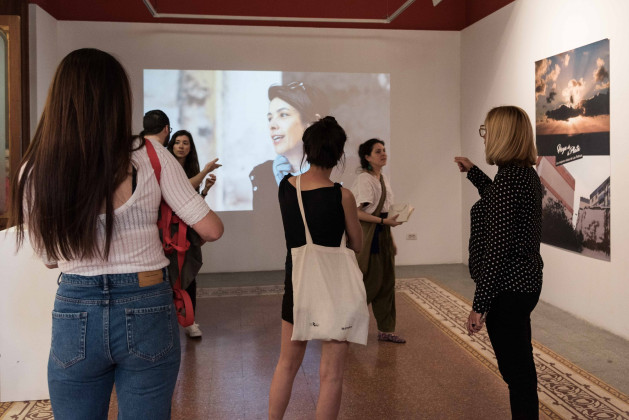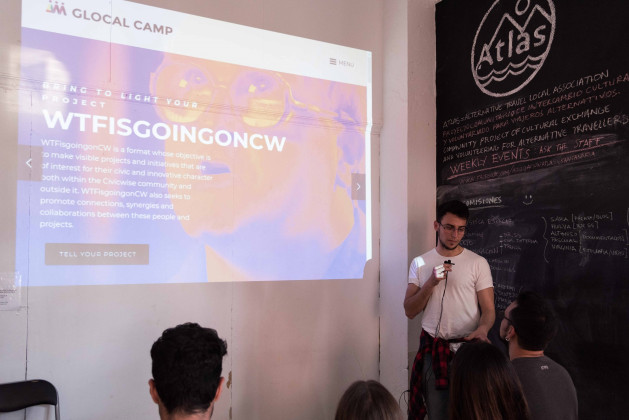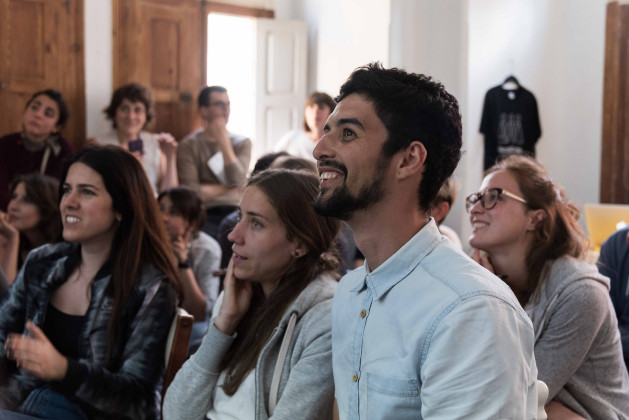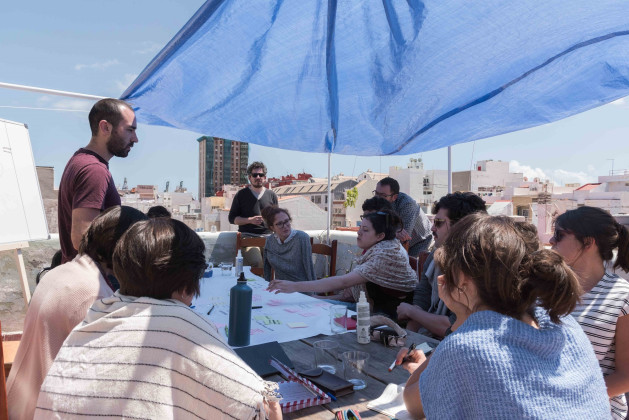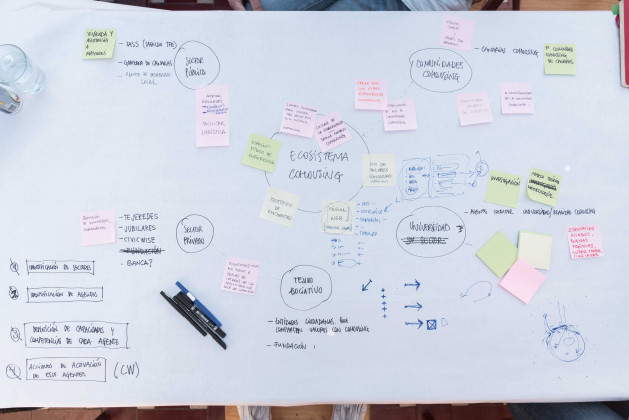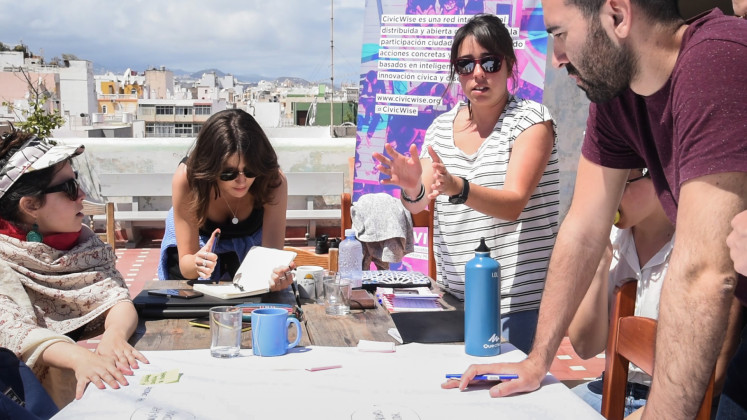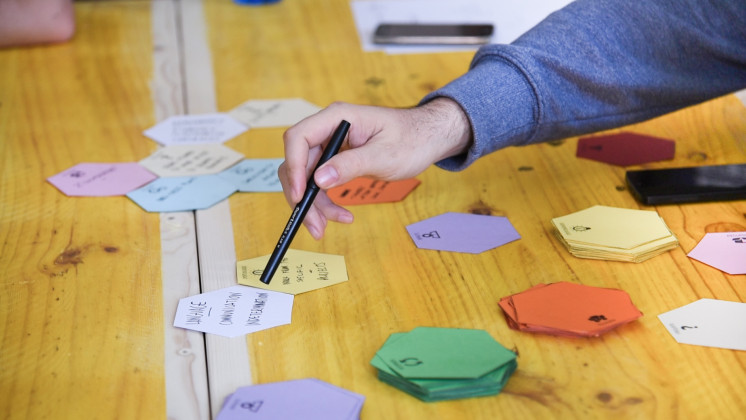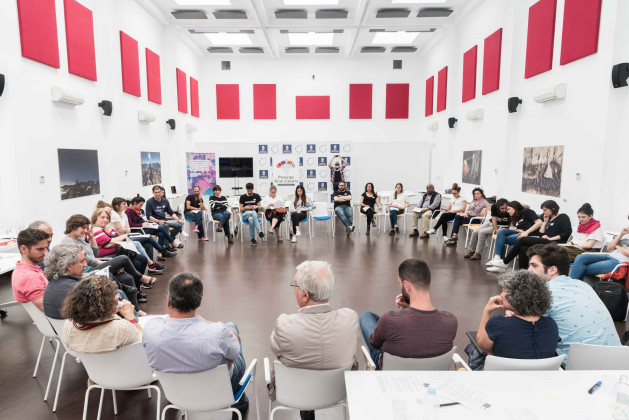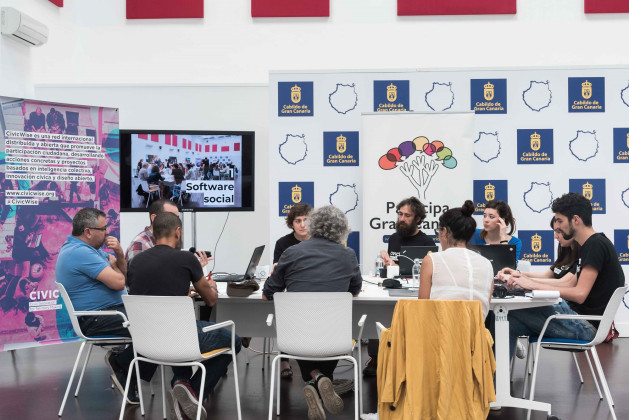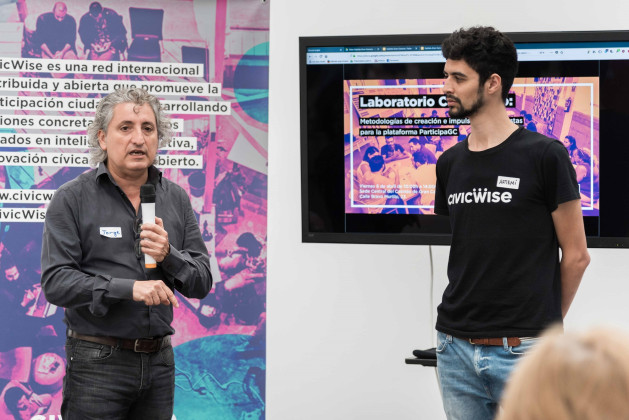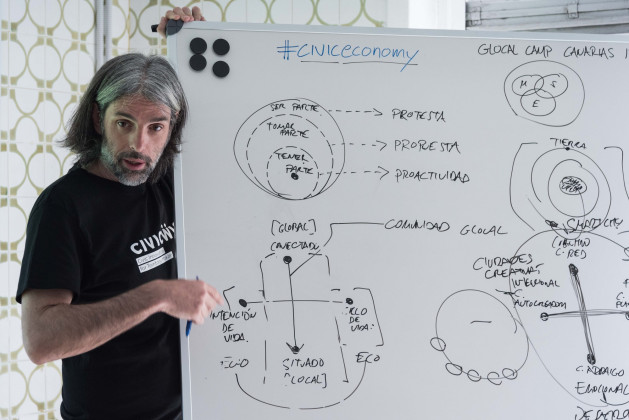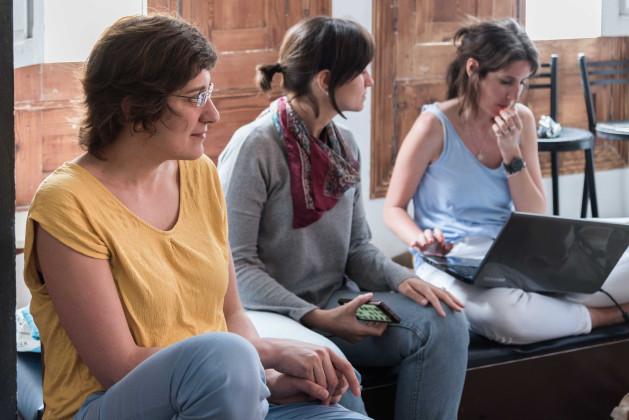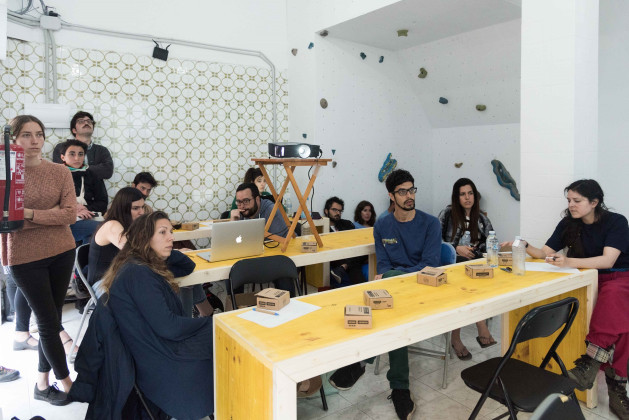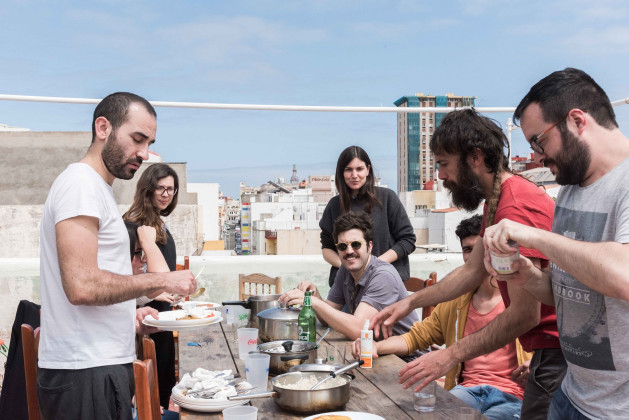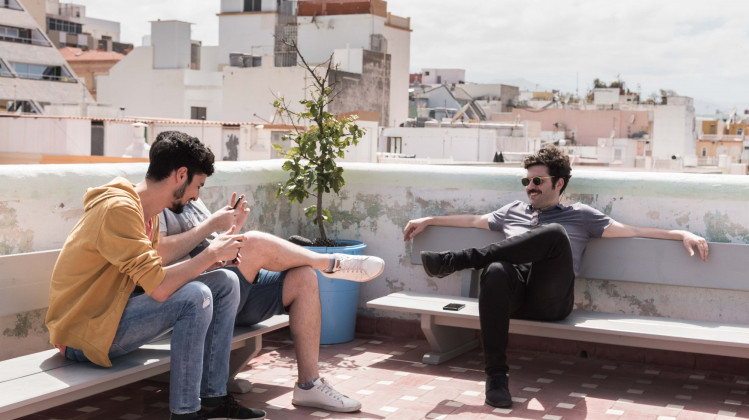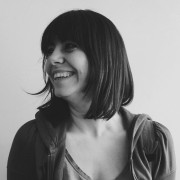Collaborative Work Through Community Building and the Other Way Around
Glocal Camp is CivicWise network’s physical gathering to discuss the civic innovation methods, tools, projects and its global governance, as well as to generate a local impact. The fourth edition of Glocal Camp was held in Gran Canaria and Tenerife between 4-16 April. And here is an insider review by Hulya Ertas.
I am starting to write this “article” on the last Glocal Camp we had on the Canary Islands in the plane back from Tenerife to Barcelona. The first question for me is how to keep this report as a neutral piece. As now I am part of CivicWise it is getting harder and harder not to mix emotions with work. Or maybe the whole raison d’etre of this network is to mix emotions with work –a counter power against the existing division between personal life and work life. Taking off with this self-criticism I will try to sum up what happened in the last 12 days.
This was my second Glocal Camp. After joining CivicWise in L’Hospitalet, Barcelona last summer and collaborating on some projects since then, it seemed inevitable to participate in this fourth edition of the Glocal Camp. And we were going to be in two of the Canary Islands: Gran Canaria and Tenerife where we have a strong community. If the Glocal Camp in L’Hospitalet was about the general governance of the CivicWise community, Canarias edition was about learning the capacities. This does not mean the issue with the governance is well-structured and concrete, but indicates it is capable of fostering collaboration even more. And the best way to achieve this seemed to talk about projects and labs. There has been a boost, thanks to WTFisgoingonCW presentations, where anyone could just take the stage for five minutes and talk about their projects. So, we got to know what everyone is working on and what their capabilities or interests are. The idea of labs is to connect all these projects along specific themes and generate a knowledge pool woven around projects.
Well, before going any deeper now is the right moment to define what CivicWise is. This is a question many people within the network is asking themselves and their colleagues, whereas nobody seems to be sure about the answer. This uncanny positioning of the definition reveals one of the most fundamental features of CivicWise, the permanent beta mode. Anyhow, I am a practical woman and will try to define it my way. CivicWise is people who work on a variety of projects that focus on civic innovation with shared values such as openness, inclusivity, collective intelligence, etc. Projects can be limited to time, location and contribution of certain interested people, but the knowledge accumulated during these projects is global. So, the network is a combination of local circles and global knowledge. Nowadays even projects not limited to locations are coming afore, mainly digital ones that work as transversal upon local and global. If this still sounds cloudy please be patient, I’ll be talking about some specific projects to clear up the sky.
In all of the major cities of Spain, city administrations have set up digital participation platforms, Barcelona’s Decidim and Madrid’s Consul are available on Github as an open source software to be appropriated by any interested parties. And Grand Canaria’s local platform Participa Gran Canaria is based on Consul, yet the differences between quantity and behavioural patterns challenged the local administrations to find ways to adapt Consul to needs of the community. One of the workshops of Glocal Camp was based on this issue. How can you generate meaningful participation and how can you bend, shift or transform the existing protocols for that cause? And how can you do it bottom-up, in line with the nature of the digital participation platform itself? The Citizen Laboratory workshop took off with 40 citizens, sharing their opinions about the already existing Participa GC and proposals to fit it better to their needs. The morning session of four hours was followed by a meeting with decision makers in the afternoon, where the feedbacks were passed on for opening a discussion on the transformation of the platform. Five days later, we were discussing in the ground-floor of our hostel, Atlas Associacion how to transform all our collaboration tools into ones that are based on open-source software. This is a project called Digitautonomy and is an ongoing process. Now at the first step, we are listing and testing the existing open source software. Later on, probably we’ll immigrate as the whole network to these. When I say whole network, maybe I need to give some numbers, we are about 600 people in Slack, were about 60 people in total (as people came and went in different time frames) in the Glocal Camp, and if you give an approximate number you would say the network has 150-200 active people working on projects located in Spain, Italy, France, and fast-growingly in Latin America. So yes, we are working on a transformation process from platform monopolies to open source software. And in the CivicTech workshop, everyone seemed to be extremely excited about this.
Well, what else? We talked about co-housing, but co-housing with a twist. The growing number of elderly population in Spain is a reality, just like in many European countries of 21st century. And this growing population has decided to decide on their own futures. Canarias Co-housing is a project that is focusing on generating homes for people of different ages with an interdependency where the co-housing community can care for each other. As with most of the projects of CivicWise, the idea is to build a replicable model with an ecosystem of participants, stakeholders, values and protocols. We talked about urban spaces and how to regenerate them with the people using these spaces. And we discussed the role of local or city municipalities in these processes. What if we stop thinking these administrative bodies as the main financial source? Then what are the other possibilities to realise these projects and make their impact last longer? All of us knew that we were not the first ones to ask these questions, but we also knew we could find real-life answers through a balanced combination of our personal experience and collective intelligence of the CivicWise community.
Overall, CivicWise is an antidote for my dichotomic perception of the world. The dispersions between individual and collective, local and global, horizontal and vertical, theory and practice are all put aside, and a more chaotic system of moving, clashing ideas and energies is set up ad hoc and per se. Maybe it is better to repeat here some ideas I had noted after my first Glocal Camp experience. CivicWise is run by an almost-anarchist system where everyone is responsible for the common good of the community and it works almost well.
And these “almost”s bring us to the large and productive debate we had on feminism, inclusivity and visibility in these last weeks. Even though we are in favour of alternative ways of organisation among ourselves we are not entirely independent of the existing social codes. If CivicWise is a testing ground for alternative territory making, why itself cannot become an alternative for community making? It actually started with a Telegram group, in which some women of CivicWise started talking about the feminist perspective missing within CW. Now we have a name for it: FemenWise. The idea is to create solidarity among women for empowerment within CivicWise, make their work visible, spot if any type of machismo occurs during collaborative work and act against it together. And this feminist perspective got a sensitive response from the other sex; while women wanted to make the feminist meeting in a non-mixed gender environment, the men wanted to gather together to discuss their role in feminism. And as far as I heard, they were all there, and this indicates men are open to change the way we operate. These two parallel meetings and the Safe Place workshop in the last days of Glocal Camp reminded us that we could not just leave the dynamics of collaboration on its own; we need to take some measures so that our community does not become a mere extension of the existing social order. If we want to change the world, we have to do it also within our community. This idea is perfectly contrary to individual salvation from capitalism, as told in the novel of “The Monk Who Sold His Ferrari”. No, we are not looking for individual salvation, we are looking for a broader change, the one which we decide all together and this “all together” is something we have to work on.
There is a lot more to talk about Glocal Camp, especially about the “glocalina”, that strange feeling of emotionally belonging to a community and power to collaborate. But I now see that I have failed in keeping my word to stay neutral about my observations on Glocal Camp and CivicWise in general. So here I stop and drop some links to make your own judgements.
Videos shot right after every workshop: https://www.youtube.com/watch?v=F8XSoc0Wv3o&list=PLcEDucaJgDika9fnFafq3vj4e3Yf5NQPU
Glocal Camp logbook: https://glocal.camp/blog/
CivicWise website: https://civicwise.org/
Discourse Forum: http://discourse.civicwise.org/
Related Content:
-

Intervention On a Stone Ruin: Wood Design and Construction Workshop
-

Whites Workshop
-

Yuma Lab - River Workshop
-
Knowledge Transfer By Co-design
Hulya Ertas in conversation with Cristi Borcan of studioBASAR on the potentials of urban commons and co-design processes with communities in the specific context of Bucharest.
-

Energy Self-Sufficiency for Public Activation
-
Urban Development through the Culture of Volunteering
Bilgen Coşkun and Dilek Öztürk talked with sociologist and Living Cities member Jennie Björstad, about social inclusion, “yes culture” and the role volunteers for urban development.
-
Participatory Dialogues for Urban Design
Bilgen Coşkun and Dilek Öztürk talked with architects and urban planners Christelle Lahoud, Pontus Westerberg and Klas Groth from UN-Habitat about designing smart cities through participatory planning approaches.
-

Glocal Camp Modena
 26.04.2018
26.04.2018



